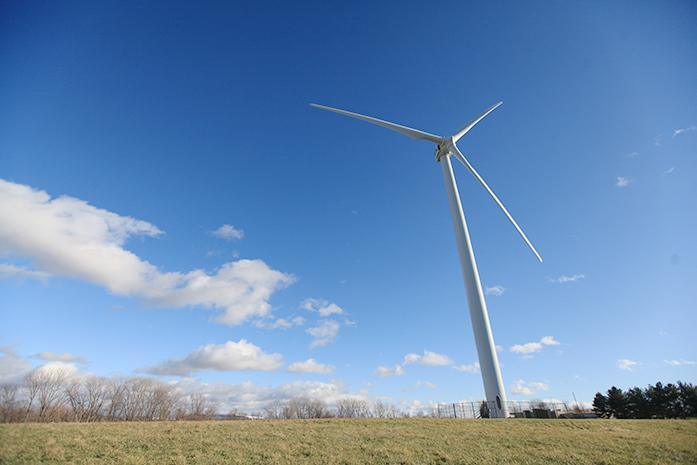The future of renewable energy holds a vast amount of potential, and few states have embraced this potential more than Iowa. Des Moines-based Mid-American Energy has recently announced plans that would set a precedent for the expansion and implementation of wind power that could ultimately change the infrastructure of the nation’s energy sector for the better. While the announcement of “a dream to deliver 100 percent renewable energy” at one point in time would have sounded like a pipe dream at best, MidAmerican has taken the initiative to make this dream a reality.
On April 21, the company announced a plan to build additional wind turbines that would generate up to “2,000 megawatts hours of electricity,” which would nearly double MidAmerican’s wind-energy rate to a staggering 85 percent. The proposed additions would require an investment of $3.6 billion, but the benefits of an increase in renewable-energy production not only for Iowans but the nation as a whole is incalculable. The absence of fuel costs, pollution, and other factors attributed to the traditional use of fossil fuels provides clear incentive for ramping up in investment in wind energy, but there is also the symbolic benefit to take into account as well.
It is hard to argue the benefits of switching over to renewable energy, and a great deal of reluctance is due to the perceived infeasibility of doing so. Across the nation, many states have a great deal of investment in the current infrastructure that favors the continued use of fossil fuels. The issue is not so much a questioning what one stands to gain from the switch but the cost of switching and if it will pay off in the long run. That said, the bold move on the part of MidAmerican sets an example for the rest of the nation to follow in terms of embracing the viability of renewable resources.
RELATED: Remembering academic mission vis-à-vis international students
Nearly all forms of energy production come with unique sets of drawbacks, but a cost-benefit analysis of long-term would reveal enough benefits to make transitioning to renewable energy the clear choice. In particular, wind energy cannot be adopted by every state because the wind is not an invariable source of energy. There is also the potential for adverse effects on surrounding wildlife that would be affected by the physical construction of the wind turbines and noise pollution to take into account. However, clean and renewable energy production carries the promise of sustainability that outweighs the momentary benefits of fossil-fuel reliance.
Iowa’s adoption of wind energy suits the energy needs and production capability of the area, and the same mentality can be applied nationwide even if the exact method of production cannot be replicated. The decision to switch to renewable energy is one both of pragmatism and longevity, and it is one that should be made nationwide.



